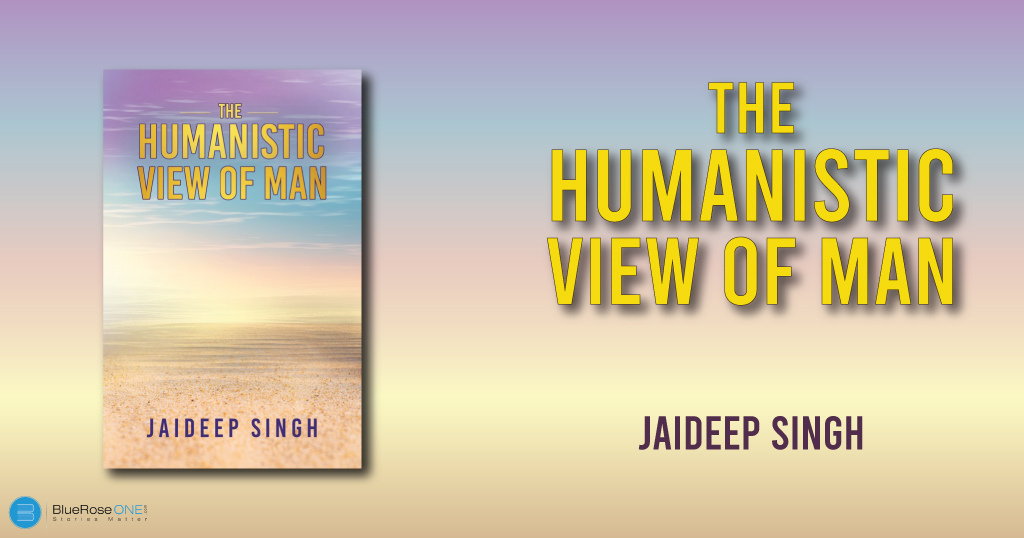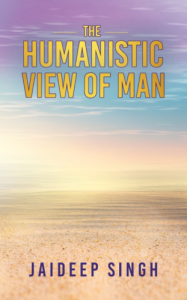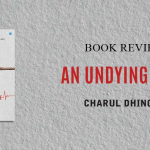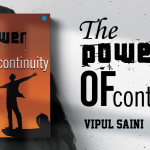Book – The Humanistic View of Man
Author – Jaideep Singh
Blurb – The Humanistic View of Man is a scientific study designed to achieve a deeper comprehension of human phenomena. The views of man held by the following five leading, contemporary, humanistic psychologists: Hubert Bonner, James Bugental, Erich Fromm, Abraham Maslow, and Rollo May have been analyzed and synthesized. Comments on the synthesis have then been obtained from Jacob Bronowski, a leading natural scientist. His essay, “A Twentieth Century Image of Man” provides further insight into his viewpoint. The study concludes with a discussion that highlights the distinctive uniqueness of the view of man held by the selected humanistic psychologists and points to the deeper inner powers that we must use to guide and energize us in our pursuit of a richer manifestation of our unlimited human wealth.
Book Review - "The HUmanistic View of Man" by Jaideep Singh
Jaideep Singh’s “The Humanistic View of Man” delves into the intricate realms of human phenomena, offering a comprehensive exploration of the perspectives held by prominent humanistic psychologists. In this scientific study, Singh dissects the views of five contemporary psychologists—Hubert Bonner, James Bugental, Erich Fromm, Abraham Maslow, and Rollo May. Through meticulous analysis and synthesis, the author unravels the essence of their perspectives on the human experience.
The strength of Singh’s work lies in his ability to present a nuanced understanding of each psychologist’s viewpoint. From Rollo May’s existential insights, probing the depths of human existence, to Abraham Maslow’s hierarchical framework of needs, the book navigates through the diverse paradigms, providing readers with a profound insight into the multifaceted nature of humanistic psychology.
A standout feature is Singh’s decision to incorporate Jacob Bronowski’s perspective, adding a layer that bridges the realms of humanistic psychology and scientific understanding. Bronowski’s essay, “A Twentieth-Century Image of Man,” offers readers a unique lens through which to perceive the subject matter. This inclusion elevates the discourse beyond a mere psychological study, fostering a holistic exploration that harmonises psychological insights with scientific perspectives. Singh’s astute choice to intertwine these diverse viewpoints enriches the reader’s experience, creating a multidimensional narrative.
The synthesis, a pivotal element in Singh’s study, functions as a connective tissue that unites the diverse perspectives into a coherent whole. Navigating through the intricacies of each psychologist’s ideas, Singh adeptly identifies common threads and distinctions. This synthesis not only elucidates shared principles but also accentuates the distinctiveness of each scholar’s viewpoint. By weaving together these varied perspectives, Singh creates a cohesive narrative that is both comprehensive and accessible to a broad audience.
Jaideep Singh’s writing style is a harmonious blend of scholarly depth and accessible prose, creating a work that caters to a broad readership. Singh’s commitment to clarity is evident throughout the book, making complex psychological concepts comprehensible to both scholars and casual readers alike. The prose acts as a bridge, inviting readers into the intricate realm of humanistic psychology without compromising on the depth of the subject matter.
In crafting his narrative, Singh employs language that demystifies the complexities inherent in the theories of the featured psychologists. The scholarly tone ensures the content’s academic rigour, while the accessible nature of the prose guarantees that readers unfamiliar with the intricacies of psychology can engage meaningfully with the material. This approach reflects the author’s dedication to making the profound insights of humanistic psychology accessible to a diverse audience, fostering an inclusive exploration of the subject. Singh’s prose serves as an effective conduit, facilitating a journey of understanding and self-discovery for readers from various backgrounds and levels of familiarity with the field.
The concluding discussion is a crowning jewel, encapsulating the distinctive uniqueness of the humanistic psychologists’ views on man. Singh artfully directs attention to the profound inner powers that these psychologists advocate tapping into for a more enriched manifestation of human potential. The conclusion serves as an invitation for readers to introspect and explore their own inner reservoirs of untapped capabilities.
While the book excels in its exploration of humanistic psychology, a more comprehensive exploration of potential critiques or counterarguments could enhance its academic rigor. Engaging with possible counterpoints would contribute to a more balanced and robust scholarly discourse.
In essence, “The Humanistic View of Man” stands as a commendable work that bridges the realms of psychology and science. Singh’s meticulous research, coupled with his adept synthesis of diverse perspectives, offers readers a profound exploration of the human experience. Whether one is entrenched in the field of psychology or approaching it for the first time, this book provides a captivating journey into the depths of humanistic thought. As we navigate the labyrinth of the human mind, Singh’s guidebook proves invaluable, shedding light on the paths paved by these pioneering psychologists and beckoning readers to embark on their own journey of self-discovery.
Publish your book with BlueRoseONE and become a bestselling author. Don’t let your dream of becoming an author fade away, grab the opportunity now and publish your book – be it fiction, non fiction, poetry or more.

















